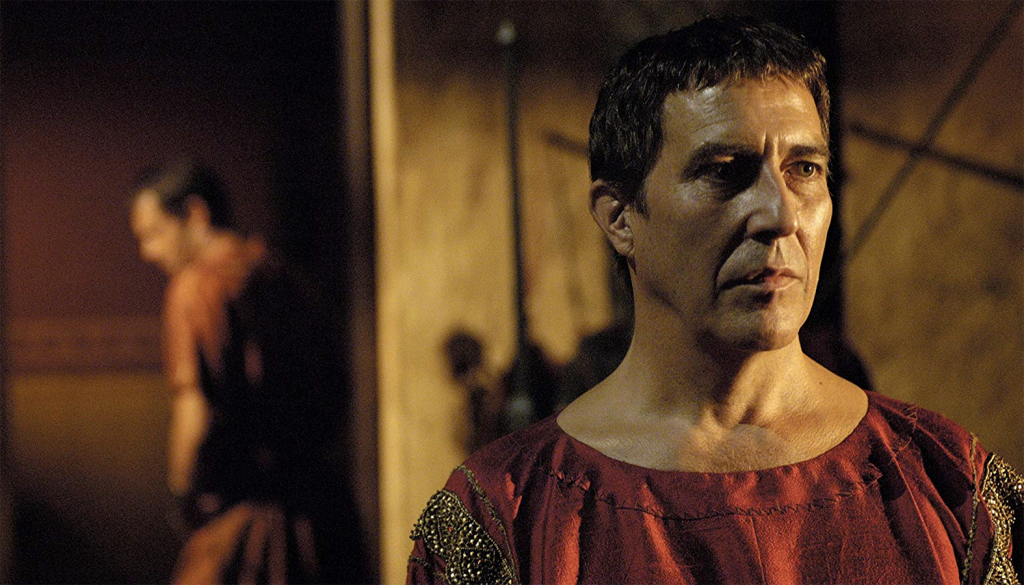Since I have a tendency to hark back to bygone ages of popular culture, especially when it comes to movies and television, the fact that I’m writing about a TV series that was on HBO in 2005 and 2007 makes me feel absolutely modern.
The show was called “Rome,” and be forewarned, it is not family-friendly subject matter … but then again, Julius Caesar, Mark Antony, and Pompey Magnus weren’t exactly family-friendly types to begin with, and their friends, relatives, enemies, and sycophants who orbited around them were also R-rated creatures. Those that would follow, like Caligula and Nero, were X-rated.
I stumbled upon this show in A.D. 2019, discovering it as part of my new streaming service offering. In brief, it chronicles the rise of Julius Caesar through the point of view of a fictional Roman soldier.
With all the talk about pagan origins of one thing or another that has erupted before, during, and after the Amazon Synod, I found the Roman soldier’s faith in a panoply of Roman gods and goddesses strangely modern, to the extent that it mirrors so much of how people relate to religiosity and spirituality today.
First, the Romans were kind of lazy when it came to their gods and goddesses, having borrowed, to put it mildly, from the ancient Greeks. Slapping a Roman name on a Greek god seemed to be the Roman supernatural modus operandi.
When history books and this not-so-old HBO series zero in on ancient Roman culture, we get a clear picture of how their religious practices were long on ritual and very light on dogma.
There are true believers, like the invented character of the Roman soldier, who makes sacrifices to the gods and is careful not to mock or disrespect them — and takes umbrage with anyone who does so in his presence. But most Romans in history books and in British television dramas are made up of nonbelievers, cynics, and skeptics.
Historical characters like Caesar are sometimes seen playing lip service to the gods for public consumption, and most of the other characters, highborn or not, basically treat the gods as the cultural decorations they are and never, ever take them as serious obstacles to their own private and public whims and desires.
No wonder the conquered Israelites were such a thorn in Rome’s side. These people took their God seriously and ordered their lives accordingly. They must have been seen as fools and imbeciles by the powerful Romans. The mere thought that, other than family honor, there was an objective power that not only ruled the universe, but did so in a personal manner, did not fit the pagan model.
And a real God with real power would have a hard time competing with the Roman cultural mainstay of “pater familias” (“father of the family”), which imbued a Roman man with absolute power over his wife and children. He could disown them, enslave them, and if things really got him hot under the toga, he could kill them.
In our neo-pagan era, the popular culture may not be availing itself to its local Circus Maximus — yet — but just as ancient Roman men had the legal power to determine that an inconvenient or somehow damaged baby can be killed … well, you get the idea.
And while all of this was actually going on in the real ancient Rome, and throughout this imagined television version of it, the gods stay in their place, never making an appearance to formally correct or guide human actions. Romans may have had high priests to translate how a certain animal’s entrails were aligned, but that was as close as they were going to get to divine interaction.
More and more that is the way our popular culture likes it as well, except for the animal entrails part. Our culture, like Roman culture, was fine with religion just as long as it didn’t get in the way of us doing what we want. Little wonder the Romans would try so hard to suppress the Christian faith. It cramped their style.
Covenants of both Old and New Testaments, to pagan eyes, seem rather constrictive, not like Roman gods, and the modern gods of technology, modernism, and nature, which make people feel good about being part of something bigger with no dues to be paid.
But thanks to ancient Rome, we have the ultimate symbol of what real love is: the cross. And it shows us all what a real God was willing to do just for us, if we’re willing to pick up our own and carry it in faith.

